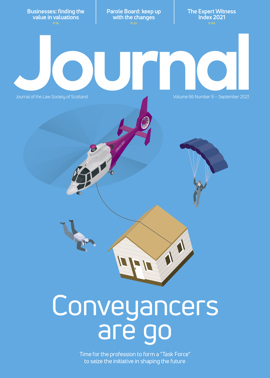Corporate: The enigma of economic duress
In Pakistan International Airline Corporation v Times Travel (UK) [2021] UKSC 40 (18 August 2021) the Supreme Court determined that the “lawful act economic duress” doctrine can void a contract. However, while not prescribing the only circumstances in which it arises, the court’s approach is seen as a narrowing of the doctrine given the restrictive grounds on which it held it could be used, while rejecting several alternative approaches.
Background
Times Travel (“TT”) sold airline tickets to and from Pakistan, on Pakistan International (“PIAC”) flights. TT raised claims for unpaid commission, but under pressure from PIAC did not pursue these. Subsequently PIAC greatly reduced TT’s ticket allocation and gave a month’s notice to terminate the arrangement (as it was allowed to do). Around that time, a director of TT was shown a draft of a new agreement which waived TT’s existing claims for commission, but was not allowed to take a copy to seek legal advice. Given the termination would have put TT out of business, TT entered into the new agreement a week later.
TT eventually claimed for the unpaid commission, winning the first round in the High Court by challenging the validity of the new contract on the grounds of economic duress. The Court of Appeal allowed PIAC’s appeal, as PIAC genuinely believed the commission was not due and had not acted in bad faith. TT appealed to the Supreme Court, which dismissed its appeal, considering the doctrine of economic duress for the first time.
Economic duress
The leading judgment was provided by Lord Hodge, with a minority judgment by Lord Burrows. The panel agreed on several factors in relation to the existence of economic duress:
- The threat/pressure by the defendant must have been illegitimate.
- Said illegitimate threat/pressure must cause the claimant to enter the contract.
- The claimant must have had no reasonable alternative to giving in to the threat/pressure.
Lord Hodge considered the two circumstances where the English courts recognised lawful act duress, reviewing previous case law where attempts to uphold or enforce a contract were described as “unconscionable” due to that party’s behaviour, and the influence of equity on the development of the common law doctrine. These circumstances were, first, where a defendant uses knowledge of criminal activity to threaten the claimant, and secondly where the defendant uses reprehensible means to manoeuvre the claimant into a position of vulnerability to force it to waive a claim.
The majority considered that PIAC’s behaviour did not add up to being unconscionable, therefore did not amount to duress, and the appeal was dismissed. It was stated that lawful act duress should not be contingent on whether the defendant honestly believed it had a defence to the claim: to do otherwise would increase an undesirable uncertainty in commercial transactions.
Although Lord Burrows agreed the appeal should be dismissed, he disagreed on the meaning of illegitimate threats in relation to economic duress. Lord Burrows (like the Court of Appeal) considered that the focus should be on the defendant’s behaviour and the justification for the demand. Lord Burrows considered that a demand would be unjustified (and the accompanying threat illegitimate) if (a) the threatening party deliberately created or increased the threatened party’s vulnerability to the demand, and (b) the “bad faith demand” requirement is met (in that the threatening party does not have or honestly believe it has a defence to the claim being waived).
Commentary
So how sharp, does sharp business need to be to constitute economic duress? As Lord Hodge states: “the scope for lawful economic act duress is extremely limited in the sphere of commercial transactions”. Only in rare circumstances will economic duress be possible in English law. The deemed existence but then curtailment of the doctrine, and rejection of any sanction of grounds for extension, was of particular disappointment to one of the interveners in the case, the All-Party Parliamentary Group on Fair Business Banking (APPG). APPG sought to explain the familiar case of SME business customers who are frequently pressurised to enter into new terms/sign away claims for continued banking services, and had hoped for a restatement of the doctrine based on good faith. Neither England nor Scotland recognises an implied duty of good faith. Lord Hodge explained that without such a doctrine, or one in relation to unequal bargaining, the behaviour of PIAC was a “hard-nosed exercise of monopoly power”, but not on its own illegitimate pressure.
What does this mean for Scots lawyers? In Scots law duress would only amount to the contract being voidable as opposed to void, and claimants would need to be careful not to accidentally ratify and “cure” the potential contractual defect (removing a right to rescission). The judgment is only applicable south of the border, and based on English concepts which do not neatly fit into Scots law, like equity (not recognised in Scotland though we do of course have equitable remedies). However confirmation of the doctrine’s existence (albeit on a restrictive basis) in English law is of great interest and could help pave the way for a Scots attempt.
Regulars
Perspectives
Features
Briefings
- Civil court: Legacy of COVID
- Corporate: The enigma of economic duress
- Employment: where will work be found?
- Intellectual property: David v Goliath battle continues
- Agriculture: Crofting disputes: some first principles
- Sport: Arbitration – within the rules?
- Property: ADS: the hidden traps
- In-house: On harm, stakeholders and risk management
In practice
- Ask Ash: Colleague's chat is my privacy
- Lockdown no more
- The Word of Gold: The potency of passion
- Get interactive at the Law and Technology Conference
- Ten red flags for conveyancers
- The Eternal Optimist: So, what do you want to be?
- Commissary: the top 10 failings
- Mobility challenges – and the kindness of strangers
- When all is remote







